“The most pathetic person in the world is someone who has sight but has no vision.”
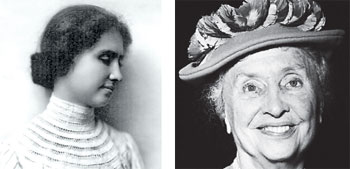 I was born on the 27th of June 1880, in Tuscumbia, Alabama to Captain Arthur Keller and Kate Adams Keller. My father was a cotton farmer and newspaper editor and had served in the Confederate Army during the Civil War. Kate My mother, 20 years his junior, had been born in the South, but had roots in Massachusetts and was related to founding father John Adams. I was a healthy child until at 19 months darkness literally overtook me. I was stricken with an illness that the doctor called “brain fever,” and I was not expected to survive. After several days, the crisis was over, to the great relief of my parents. However, they soon learned that I had not emerged from the illness unscathed, but rather, I was blind and deaf. It was later believed that what I contracted was either scarlet fever or meningitis.
I was born on the 27th of June 1880, in Tuscumbia, Alabama to Captain Arthur Keller and Kate Adams Keller. My father was a cotton farmer and newspaper editor and had served in the Confederate Army during the Civil War. Kate My mother, 20 years his junior, had been born in the South, but had roots in Massachusetts and was related to founding father John Adams. I was a healthy child until at 19 months darkness literally overtook me. I was stricken with an illness that the doctor called “brain fever,” and I was not expected to survive. After several days, the crisis was over, to the great relief of my parents. However, they soon learned that I had not emerged from the illness unscathed, but rather, I was blind and deaf. It was later believed that what I contracted was either scarlet fever or meningitis.
I was frustrated by the inability to express myself, and throwing tantrums, which often included breaking dishes and even slapping and biting family members was how I let my frustrations out of my system. When I was six years old, I tipped over the cradle holding my baby sister, Mildred, my parents knew something had to be done. Well-meaning friends and relatives suggested that I should be institutionalized, but mother resisted that notion. Soon after the incident with the cradle, mother came across a book written several years earlier by Charles Dickens about the education o f L a u r a Bridgman. Laura was a deaf-blind girl who had been taught to communicate by the direc- t o r of the Perkins Institute for the Blind in Boston.
For the first time, my parents felt hopeful that I could be helped as well. In 1886, we made a trip to Baltimore to visit an eye doctor. During our visit to the eye doctor, we received the same verdict we had heard many times before. Nothing could be done to restore my eyesight. The doctor advised my parents that I might in some way benefit from a visit to Alexander Graham Bell in Washington, D.C. Known as the inventor of the telephone, Bell, whose mother and wife were deaf, had devoted himself to improving life for the deaf and had invented several assistive devices for them.
Alexander Graham Bell and I got along very well and in the later years developed a lifelong friendship. Bell suggested that my parents write to the director of the Perkins Institute for the Blind, where Laura Bridgman, now an adult, still resided. After several months, we finally heard back. The director had found a teacher for me; her name was Annie Sullivan. My new teacher had also lived through difficult times. Born in Massachusetts in 1866 to Irish immigrant parents, Annie Sullivan had lost her mother to tuberculosis when she was eight. Unable to care for his children, her father sent Annie and her younger brother, Jimmie, to live in the poorhouse in 1876.
They shared quarters with criminals, prostitutes, and the mentally ill. Young Jimmie died of a weak hip ailment only three months after their arrival, leaving Annie griefstricken. Adding to her misery, Annie was gradually losing her vision to trachoma, an eye disease. Although not completely blind, Annie had very poor vision and would be plagued with eye problems for the rest of her life. When she was 14, Annie begged visiting officials to send her to school. She was lucky, for they agreed to take her out of the poorhouse and send her to the Perkins Institute. Annie had a lot of catching up to do. She learned to read and write, then later learned braille and the manual alphabet (a system of hand signs used by the deaf). After graduating first in her class, Annie was given the job that would determine the course of her life teacher to me. Without any formal training to teach a deaf-blind child, 2 0 - y e a r - o l d Annie Sullivan arrived at our home on March 3, 1887.
It was a day that I referred to as “my soul’s birthday.” We were both very strong-willed and frequently clashed. One of the first of these battles revolved around my behaviour at the dinner table, where I roamed freely and grabbed food from the plates of others. Dismissing the family from the room, Annie locked herself in with me. Hours of struggle ensued, during which Annie insisted I eat with a spoon and sit in my chair. It was quite liberating, and Annie Sullivan was an amazing teacher. In order to distance me from my parents, who gave in to my every demand, Annie proposed that she and I move out of the house temporarily. We spent about two weeks in the “annex,” a small house on the Keller property (my parents’ property).
Annie knew that if she could teach me self-control, I would be more receptive to learning. Oh, I fought Annie on every front, from getting dressed and eating to going to bed at night. Eventually, I resigned myself to the situation, becoming calmer and more cooperative. Then the teaching begun. Annie constantly spelled words into my hand, using the manual alphabet to name the items she handed to me. I was very intrigued but did then realize that what she was helping me do was more than just a game. On the morning of April 5th 1887, Annie Sullivan and I were outside at the water pump, filling a mug with water. Annie pumped the water over my hand while repeatedly spelling “w-a-t-e-r” into her hand. I suddenly dropped the mug. As Annie later liked to describe it, “a new light came into her face.” I finally understood what we were doing. It felt enlightening.
All the way back to the house, I touched objects and Annie spelled their names into my hand. Before the day was over, I had learned 30 new words. It was just the beginning of a very long process, but a door had been opened for me. Annie also taught me to how to write and how to read braille. By the end of that summer, I had learned more than 600 words. Annie Sullivan sent regular reports on my progress to the director of the Perkins Institute. On a visit to the Perkins Institute in 1888, I met other blind children for the first time. I returned to Perkins the following year and stayed for several months of study. It was great but a turmoil afterwards. I dreamt of entering in to Radcliffe, a women’s university in Cambridge, Massachusetts. I had to complete high school first. I attended a high school for the deaf in New York City, then later transferred to a school in Cambridge. I was lucky my tuition and living expenses was paid for by wealthy benefactors.
Keeping up with school work challenged both Annie and me. Copies of books in braille were rarely available, requiring that Annie read the books, then spell them into my hand. I would then type out notes using my braille typewriter. It was a gruelling process. I withdrew from the school after two years, completing my studies with a private tutor. I gained admission to Radcliffe in 1900, making myself the first deaf-blind person to attend college. I graduated from Radcliff in 1904, with Honours. It was Annie’s and my will power that got us through this and I am forever thankful to her. I turned my life around with all the help I could get and in summary I was a pacifist during World War I and a socialist, an advocate for women’s rights and a member of the fledgling American Civil Liberties Union. I travelled to 35 countries during my lifetime to support the rights of the blind. Life indeed, is one gruelling fight and a journey worth living. Never bend your head. Always hold it high. Look the world right in the eye!
Yours Dearly,
Helen Keller
Written by Devuni Goonewardene (email feedback to [email protected])
















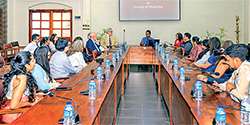
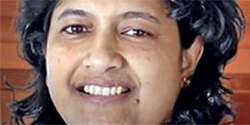


















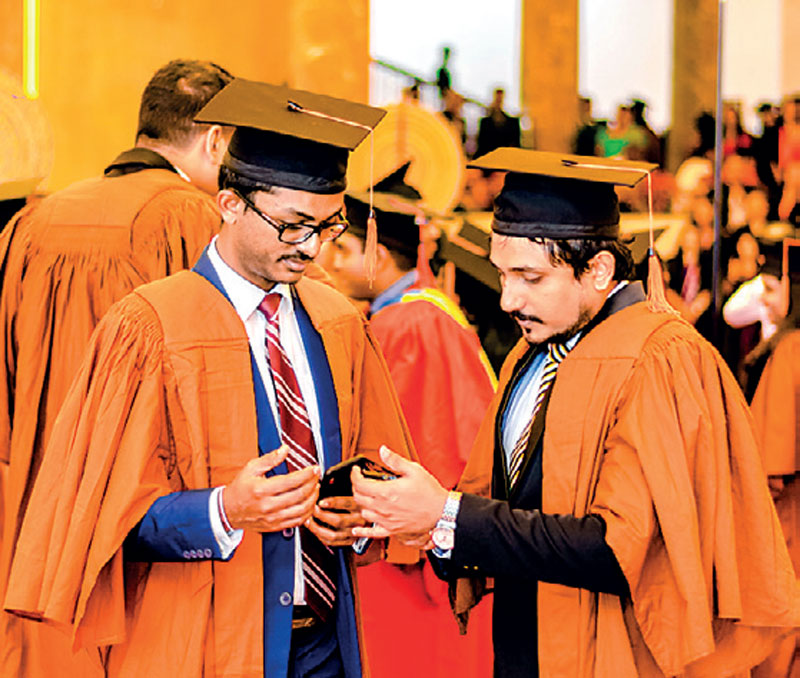

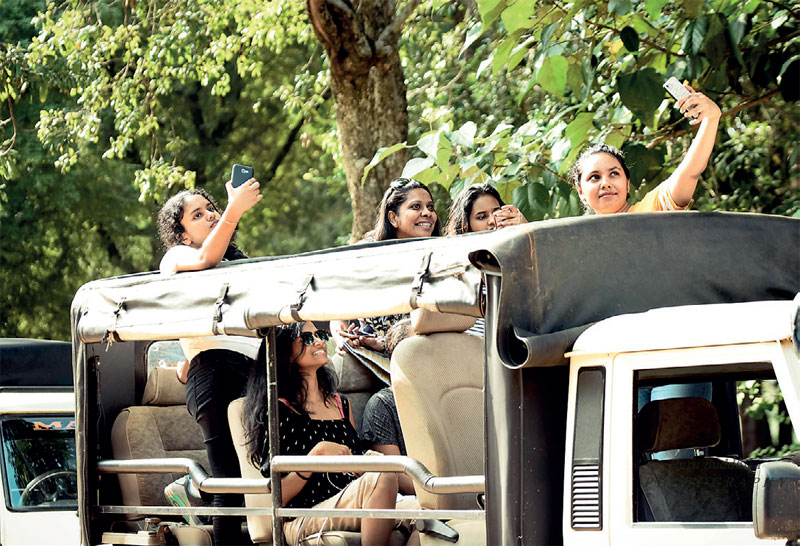
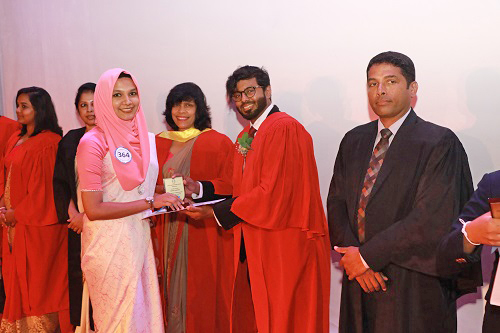
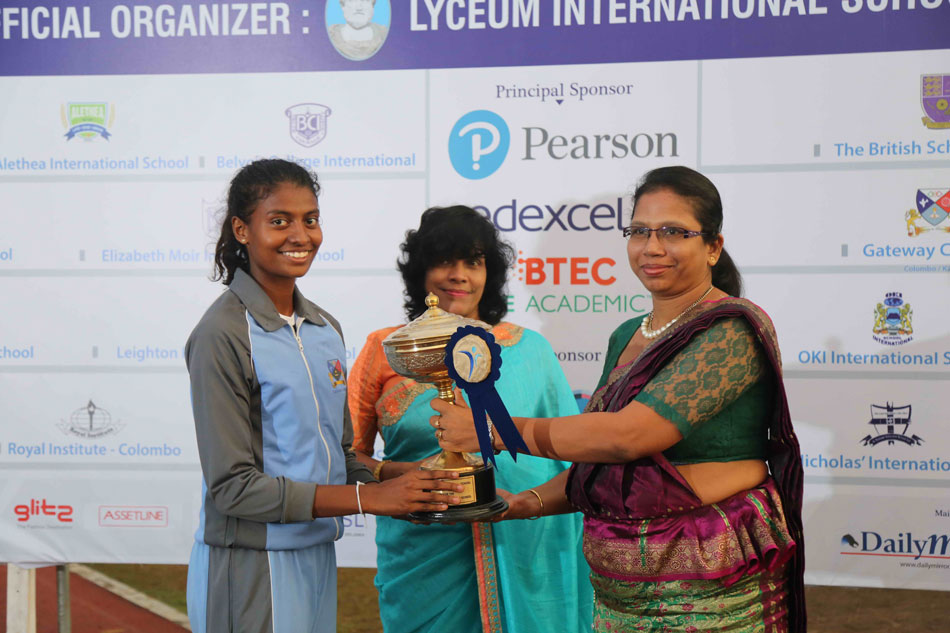
.jpg)
.jpg)
.jpg)
.jpg)

.jpg)
